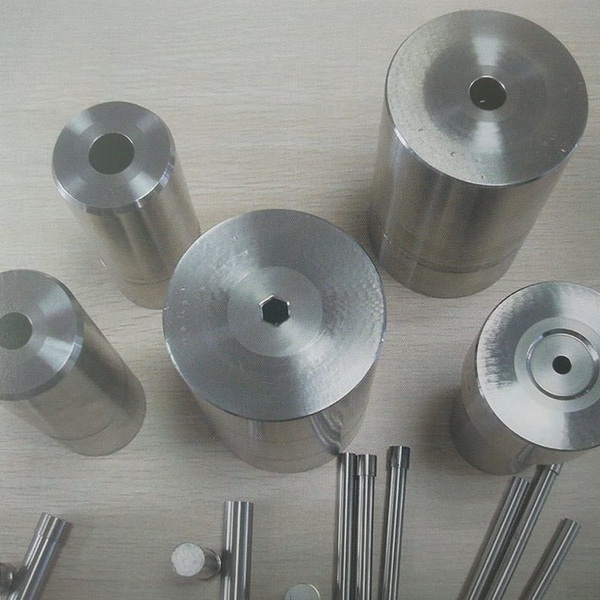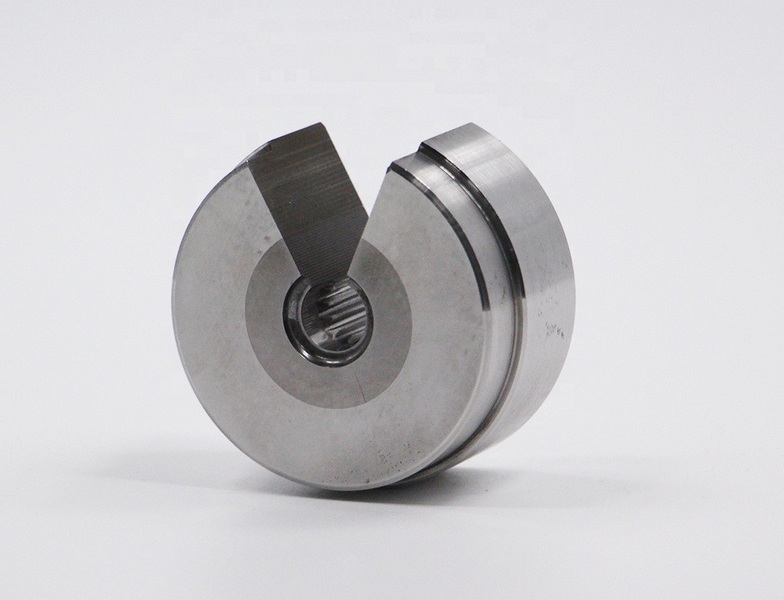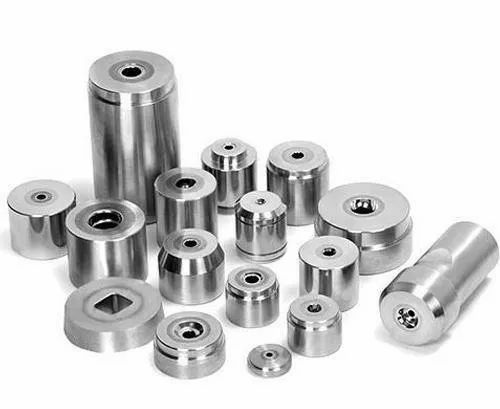Content Menu
● Introduction
● Understanding Tungsten Carbide Dies
>> Types of Tungsten Carbide Dies
● Advantages of Tungsten Carbide Dies
>> Durability and Longevity
>> Precision and Accuracy
>> Cost-Effectiveness
● Applications of Tungsten Carbide Dies
● Choosing the Right Tungsten Carbide Die Manufacturer
● Maintenance and Care for Tungsten Carbide Dies
● Conclusion
● Frequently Asked Questions
>> Q1. What are tungsten carbide dies used for?
>> Q2. How long do tungsten carbide dies last?
>> Q3. Are tungsten carbide dies more expensive than other types of dies?
>> Q4. Can tungsten carbide dies be customized?
>> Q5. How should tungsten carbide dies be maintained?
Introduction
Tungsten carbide is a remarkable material known for its exceptional hardness and durability, making it a preferred choice in various manufacturing processes. Among its many applications, tungsten carbide dies play a crucial role in shaping and forming materials in industries such as automotive, aerospace, and metalworking. This article explores the key benefits of using tungsten carbide dies in manufacturing, highlighting their advantages, applications, and the importance of selecting the right manufacturers.
Understanding Tungsten Carbide Dies
Tungsten carbide dies are specialized tools made from a composite of tungsten and carbon, which results in a material that is incredibly hard and wear-resistant. These dies are used in various manufacturing processes, including drawing, stamping, and extrusion. The unique properties of tungsten carbide make it suitable for high-precision applications where durability and accuracy are paramount.
Types of Tungsten Carbide Dies
There are several types of tungsten carbide dies, each designed for specific applications:
- Drawing Dies: Used in wire and rod manufacturing, drawing dies help shape materials by pulling them through a die to reduce their diameter.
- Stamping Dies: These dies are employed in metal stamping processes to cut and shape materials into desired forms.
- Extrusion Dies: Used in the extrusion process, these dies shape materials by forcing them through a die opening to create continuous profiles.

Advantages of Tungsten Carbide Dies
Durability and Longevity
One of the most significant advantages of tungsten carbide dies is their durability. Tungsten carbide is one of the hardest materials available, making these dies resistant to wear and tear. Unlike dies made from softer materials, tungsten carbide dies can withstand the rigors of high-volume production without significant degradation. This durability translates into a longer lifespan, reducing the need for frequent replacements and minimizing downtime in manufacturing processes.
Precision and Accuracy
Precision is critical in manufacturing, especially in industries that require tight tolerances. Tungsten carbide dies offer exceptional accuracy, ensuring that the final products meet stringent specifications. The ability to maintain precise dimensions over extended periods is a key benefit, as it reduces the likelihood of defects and rework. Manufacturers can rely on tungsten carbide dies to produce consistent, high-quality components that meet customer expectations.
Cost-Effectiveness
While the initial investment in tungsten carbide dies may be higher than that of other materials, the long-term cost savings are substantial. The durability and longevity of tungsten carbide dies mean that manufacturers spend less on replacements and maintenance. Additionally, the precision of these dies reduces material waste and rework costs, further enhancing their cost-effectiveness. Over time, the return on investment for tungsten carbide dies becomes evident, making them a smart choice for manufacturers.
Applications of Tungsten Carbide Dies
Tungsten carbide dies are utilized across various industries, each benefiting from their unique properties. Some of the key applications include:
- Automotive Industry: In the automotive sector, tungsten carbide dies are used to manufacture components such as gears, shafts, and other critical parts that require high strength and precision.
- Aerospace Industry: The aerospace industry relies on tungsten carbide dies for producing lightweight yet strong components that can withstand extreme conditions.
- Metalworking: In metalworking, tungsten carbide dies are essential for processes like wire drawing and metal stamping, where precision and durability are crucial.
Choosing the Right Tungsten Carbide Die Manufacturer
Selecting the right manufacturer for tungsten carbide dies is vital to ensure quality and performance. Here are some factors to consider:
- Experience: Look for manufacturers with a proven track record in producing tungsten carbide dies. Experienced manufacturers are more likely to understand the nuances of the material and its applications.
- Customization Options: Different manufacturing processes may require specific die designs. Choose a manufacturer that offers customization options to meet your unique needs.
- Material Quality: The quality of the tungsten carbide used in the dies is critical. Ensure that the manufacturer sources high-grade materials to produce durable and reliable dies.

Maintenance and Care for Tungsten Carbide Dies
To maximize the lifespan of tungsten carbide dies, proper maintenance and care are essential. Here are some best practices:
- Regular Inspection: Periodically inspect dies for signs of wear or damage. Early detection of issues can prevent more significant problems down the line.
- Cleaning: Keep dies clean to prevent material buildup that can affect performance. Use appropriate cleaning methods to avoid damaging the surface.
- Storage: Store tungsten carbide dies in a dry, controlled environment to prevent corrosion and damage.
Conclusion
Tungsten carbide dies offer numerous benefits that make them an invaluable asset in manufacturing. Their durability, precision, and cost-effectiveness contribute to improved production efficiency and product quality. By understanding the advantages of tungsten carbide dies and selecting the right manufacturers, businesses can enhance their manufacturing processes and achieve better results.

Frequently Asked Questions
Q1. What are tungsten carbide dies used for?
Tungsten carbide dies are used in various manufacturing processes, including wire drawing, metal stamping, and extrusion. They help shape and form materials with high precision and durability.
Q2. How long do tungsten carbide dies last?
The lifespan of tungsten carbide dies can vary depending on usage and maintenance. However, they are known for their durability and can last significantly longer than dies made from softer materials.
Q3. Are tungsten carbide dies more expensive than other types of dies?
Yes, tungsten carbide dies typically have a higher initial cost compared to dies made from softer materials. However, their long-term durability and cost-effectiveness often justify the investment.
Q4. Can tungsten carbide dies be customized?
Many manufacturers offer customization options for tungsten carbide dies to meet specific manufacturing needs. This allows businesses to obtain dies tailored to their unique applications.
Q5. How should tungsten carbide dies be maintained?
To maintain tungsten carbide dies, regular inspections, cleaning, and proper storage are essential. Keeping dies in good condition can extend their lifespan and ensure optimal performance.
















